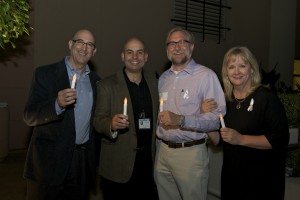The holiday season is upon us. Traditionally this is a time for reflection on our values, both our personal values and those shared by society at large. We are also in the midst of a heated political campaign season, made divisive largely through a fearful shift throughout our culture. Because these holidays, pretty universally across religious boundaries, are focused on peace, it seems like a good time to consider some of the foundational concepts that have created the divisiveness we are experiencing. By addressing some of these, perhaps the peace we aspire to will be easier to grasp for all of us.
The topics of gun control, national security and terrorism, taxes, healthcare and climate change are issues we all agree are important to our society. Ideological divides often prevent productive conversations on these issues, largely because we, as a society, are quite uninformed about the facts underlying each issue. And our politicians frequently do not help this situation, preferring to fan the fires of discontent rather than address issues in an open and honest fashion. We, however, as cognizant and inquisitive humans, have the ability to sidestep the easy rhetoric and parroting of sound bytes in order to debate issues in a civil manner not currently reflected by many high-profile politicians and certainly not reflected by most pundits in the media. Continue reading Truth, Peace and Holiday Values


